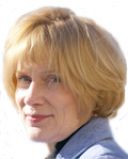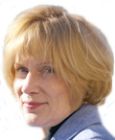Health
The Fully Expressed Life
Identifying that thing that will grow your potential offers multiple benefits.
Posted June 19, 2014
Since I’m heading out for a writers' retreat, I thought I’d post an op-ed I wrote once that addresses one of my favorite topics: finding and immersing in your life direction. I devoted a book of exercises to the subject, but here’s just a taste:
Did you know that taking charge of your life may actually improve your health? It turns out that the pursuit of happiness has a beneficial trickle-down effect.
Everyone wants to be healthier, and biologists are always testing things that affect the immune system. One study by Dr. Marian Diamond at the University of California at Berkeley indicated that the part of the brain that plans (the dorsolateral cortex) also communicates with our immune system. (There’s actually a documentary in the works about her called “My Love Affair with the Brain.”)
When Diamond found that mice with a diminished dorsolateral cortex did not produce immune cells, she tested a theory on humans. Several groups of women played contract bridge – a game that requires planning, memory, and strategy – while others passively listened to music. After an hour, those involved in the game showed an increase in immune cell production (CD4 cells), but there was no such benefit for the music listeners.
Diamond surmised that activities that stimulate the planning brain might also strengthen the immune system. "From our preliminary results showing that the game of bridge can increase CD4 cells," she said, "our research supports the possibility that taking control over your life can enhance your physical health."
To plan effectively, we need a sense of purpose, such as that touted in the 1980s by the late folklorist, Joseph Campbell. He urged people to direct their lives toward the "special track" that was waiting for them. Once found, then "the life that you should be living is the one you are living."
By “bliss” he meant that each person has skills and talents that collectively move us toward authentic self-expression. Bliss is our natural direction; it inspires the highest caliber of creativity and performance. Some people know the first time they put pen to page that they were born to write. Others feel most at home with law or engines or children.
Mary Lynn, a marketing director, came into her own after years of trying to work at other occupations. She was delighted that she finally found something that utilized her creative energy. "Achieving my bliss," she says, "is not essentially selfish. In the process of reaching into myself, I create something that others enjoy."
Therapist Pelli Wheaton believes that less than 10% of us are being our own true selves, because it takes courage to break patterns that block us. Those who live authentically, she observes, "radiate joy."
This joy is about fully exercising our potential. Yet what does this actually involve?
We can think of bliss as both the stimulus and the goal that gets us through an obstacle course, a.k.a., life. Bliss is not fate. It's more the idea that our style, background, and personality best match a particular vocation or avocation. The more we work within our bliss, the better it feels. While we can block it with fear or bad habits, we can also use discipline and self-awareness to achieve it.
In fact, that's the first obstacle: acquiring self-knowledge. We need to know what depletes our courage. We also need to know our personal strengths. Then we can try to avoid or minimize whatever hinders us and fully exploit whatever empowers us.
After that, we must honestly assess our talents, skills, and preferences. People often confuse bliss with something they've dreamed about becoming, such as an actor, yet having a poor memory would undermine a stage career. A dream is only a guide if it's realistic.
Based on our talents and opportunities, we can create a vision that identifies those actions (and people) that support it. Best-selling writer Dean Koontz first struggled through years of hardship, but keeping the best-sellers list in his mind helped him to persevere. He shut out naysayers and set clear goals that he derived from a sense of certainty that writing was what he was meant to do. Now every one of his novels hits the top of the charts.
A fourth step is to develop mental agility. That means we can see things from many angles, which offers resilience when we need it. Figuring out what best expresses us can be hard work, especially if we have few supporters. At times, we'll need to reframe setbacks.
Identifying the type of work that will satisfy us, grow our potential, and bring us joy gives us both mental and physical advantages. It makes us healthier. It gives us a sense of direction and momentum. Thanks to science, we also have good reason for focusing on that “special track” that is meant for us.
Going on a writers’ retreat reminds me of these truths. Twenty-five years ago, I realized how it felt to live the life I should be living. Despite setbacks and losses, I’m still doing it. Staying on track has given me momentum, purpose, and achievement. How can that be anything but good for my immune system?




